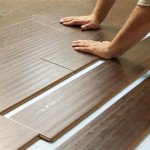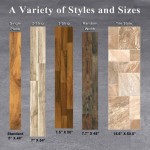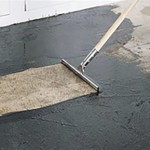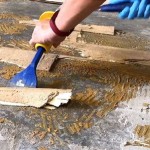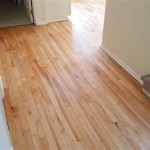A Comprehensive Guide to Ipe Hardwood Flooring
Ipe, also known as Brazilian walnut, is a highly prized hardwood species renowned for its exceptional beauty, durability, and resistance to the elements. Originating from the tropical rainforests of Central and South America, Ipe is a highly versatile material that is perfect for both indoor and outdoor flooring applications. Here's a comprehensive guide to Ipe hardwood flooring, covering its unique characteristics, installation considerations, maintenance techniques, and more.
Characteristics of Ipe Hardwood Flooring
Exceptional Durability: Ipe is one of the hardest and most durable hardwood species in the world, with a Janka hardness rating of 3,500. This means it is incredibly resistant to scratches, dents, and wear, making it an ideal choice for high-traffic areas.
Natural Resistance: Ipe is naturally resistant to rot, decay, insects, and moisture. Its high density makes it impervious to moisture penetration, preventing warping and cupping. This makes it a low-maintenance flooring option, especially for outdoor areas.
Stunning Appearance: Ipe boasts a rich, reddish-brown hue that darkens over time. Its unique grain patterns and natural luster create a visually stunning and inviting ambiance in any space.
Installation Considerations
Subfloor Requirements: Ipe hardwood flooring can be installed over a variety of subfloors, including concrete, plywood, and OSB. However, it is essential to ensure that the subfloor is level, dry, and free of defects.
Acclimation: Before installation, the Ipe planks must be acclimated to the local climate. This process involves allowing the wood to adjust to the temperature and humidity levels of the installation site for several days.
Fastening Methods: Ipe can be installed using nails, screws, or a combination of both. The specific fastening method will depend on the type of subfloor and the desired level of durability.
Maintenance and Care
Regular Cleaning: To maintain the beauty and longevity of your Ipe flooring, regular cleaning is essential. Use a vacuum or broom to remove dust and debris and occasionally mop with a pH-neutral cleaner.
Resealing: Ipe flooring benefits from a protective sealant, especially in high-traffic areas or outdoor environments. Use a high-quality penetrating oil-based sealer to repel moisture and enhance its natural luster.
Avoid Abrasives: Avoid using harsh chemicals, abrasive cleaners, or steel wool on Ipe flooring, as they can damage its surface. Opt for gentle cleaning solutions and soft cloths or brushes instead.
Advantages of Ipe Hardwood Flooring
Long-Lasting: Ipe flooring is known for its exceptional durability, ensuring a long lifespan with minimal maintenance.
Environmentally Friendly: Ipe is a renewable resource that is harvested sustainably from managed forests. It is an excellent choice for those seeking an eco-conscious flooring option.
Versatile: Ipe is suitable for a wide range of applications, from indoor flooring in high-traffic areas to outdoor patios and decks.
Conclusion
Ipe hardwood flooring is a truly remarkable choice for those seeking a combination of durability, beauty, and environmental consciousness. Its exceptional characteristics, ease of maintenance, and versatility make it a worthwhile investment for any home or commercial space. By following the guidelines outlined in this guide, you can ensure that your Ipe hardwood flooring remains a stunning and functional centerpiece for years to come.

The Complete Guide To Ipe Wood Cnc Masters

Ipe Brazilian Walnut Hardwood Flooring Spotlight

Ipe Brazilian Walnut Hardwood Flooring Spotlight

Ipe Hardwood Flooring A Durable Unique Choice

A Complete Guide To Natural Wood Flooring Trends Ipe Woods Usa
Ipe Wood Decking Guide For Homeowners Altruwood

Ipe Vs Composite Camaru And Other Hardwoods

Ipe The Wood Database Hardwood

Ipe Brazilian Walnut Hardwood Flooring Spotlight

Ipe Wood Flooring Solid Hardwood And Engineered Strong Long Lasting Quality
See Also
